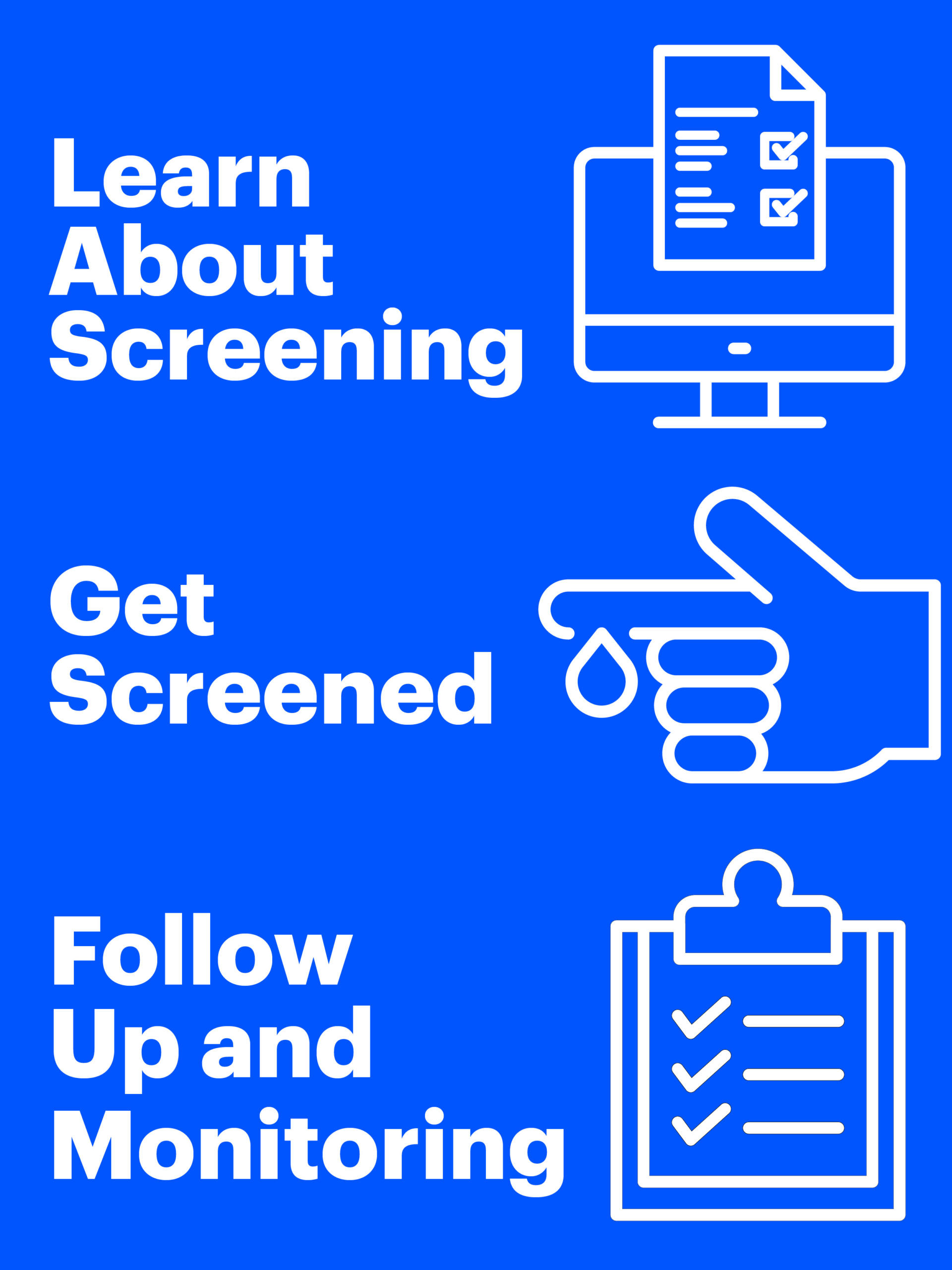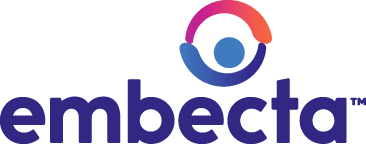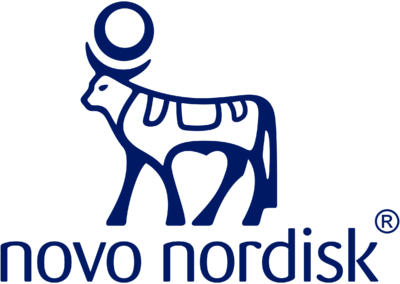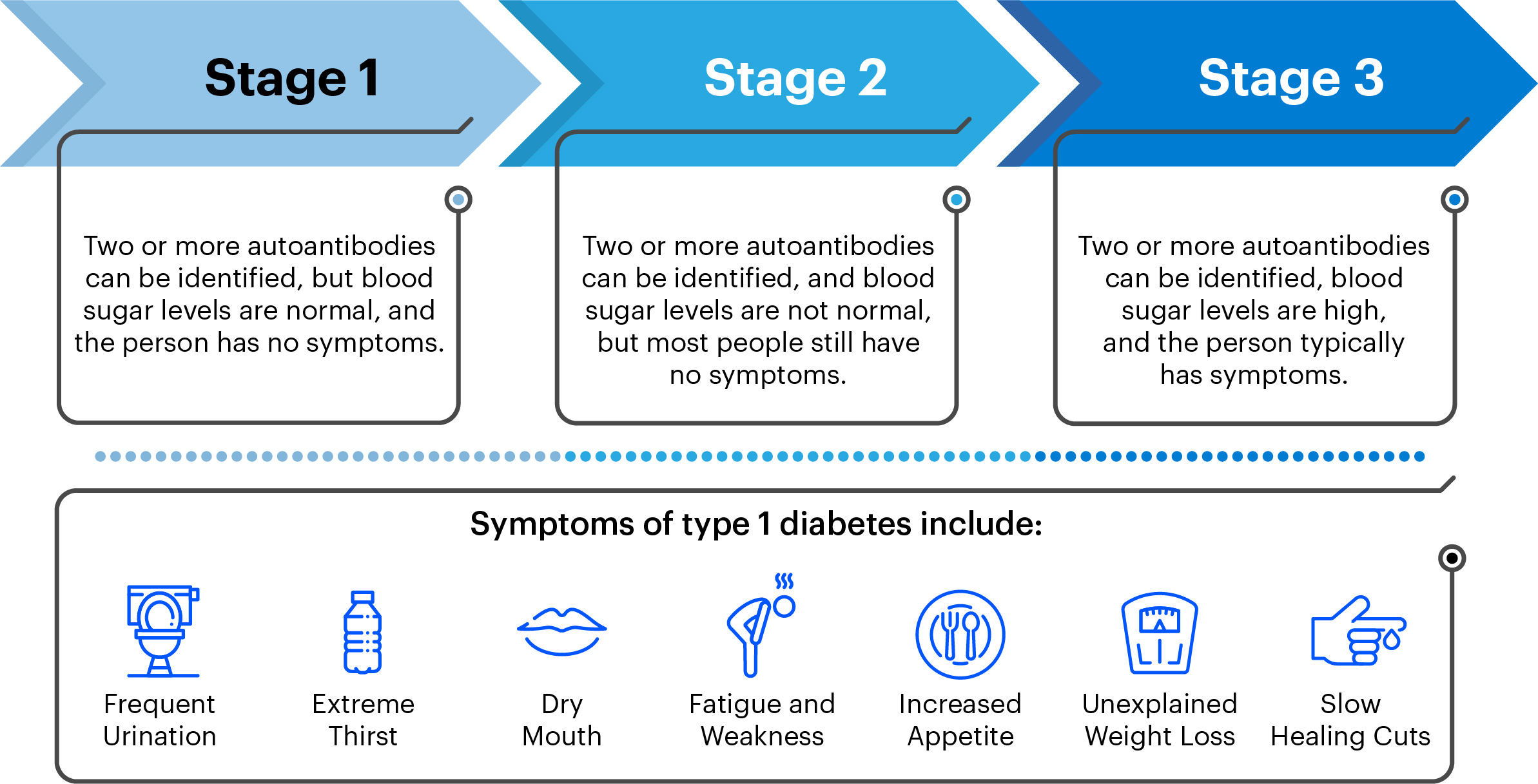
-
Because type 1 diabetes develops in stages over time, a blood test can identify people at risk by looking for proteins in the blood called autoantibodies. These autoantibodies signal that the body’s immune system is attacking the insulin producing cells in the pancreas. If a person has two or more persistent autoantibodies, they are at high risk for developing type 1 diabetes.
-
People who have a family member with type 1 diabetes are at an increased risk (15x) for developing the disease. Current clinical guidelines recommend people with a first-degree relative with T1D (parent, sibling, or child) get screened. However, about 85% of T1D diagnoses happen to people with no known family connection which is why JDRF has a long-term goal of global universal screening. Everyone should know the signs and symptoms of T1D. 1,2
-
Detecting type 1 diabetes risk in its early stages can prevent life-threatening complications and hospitalization during diagnosis. It may also open the opportunity to participate in clinical trials or you may be eligible for FDA approved disease modifying therapies like Teplizumab-mzwv (Tzield). Teplizumab-mzwv (Tzield) can delay the onset of insulin dependent T1D for an average of two years.3 If you have positive test results, you will also be able to develop a plan for further monitoring with your doctor to avoid an unexpected emergency diagnosis.
How do you screen for type 1 diabetes?
Research Study: If you have a family member with type 1 diabetes, one of the first pathways you should explore is a research study. This will put you in contact with some of the world’s leading type 1 diabetes doctors, researchers, and diabetes care and education specialists. |
TrialNet: A free, research-based screening and clinical trial program for family members of people with type 1 diabetes. This network of experts has sites throughout the United States and screening can be done through an at-home kit or in-person. The program is available for individuals between the ages of 2.5 and 45 years with a first-degree relative (parent, child, sibling) with T1D, ages 2.5 to 20 with a second-degree relative (cousin, grandparent) with T1D, OR ages of 2.5 to 45 years and have tested positive for at least one T1D related autoantibody outside of TrialNet. |
ASK (Autoimmunity Screening for Kids): Provides screening for T1D and celiac disease for all children ages 1-17 years in the United States. No family connection to T1D is required to participate in the ASK program. |
PLEDGE (Population Level Estimate of Type 1 Diabetes Risk Genes in Children): Provides screening of children younger than age 6 who are patients at Sanford Health in South Dakota. |
Blood tests ordered by your doctor: Your doctor (or your child’s doctor) can order labs to detect T1D autoantibodies and the cost may be covered by your insurance. |
Hear the Holsinger family’s experience with screening their twin boys, Noah and Harrison
What do my lab results mean?
Type 1 diabetes develops in stages over time. Screening can help identify early-stage type 1 diabetes before symptoms occur so that a monitoring plan can be developed with your healthcare provider. The chart below explains the different stages of type 1 diabetes and the symptoms that families should be aware of during monitoring.
What should I do next?
What you do after receiving your results is equally as important as getting screened. The good news is that most people will screen negative for T1D autoantibodies. Based on existing evidence, we expect 97% of family members and 99.7% of people in the general population to have a negative result.
If your results are negative and you’re under the age of 18, you may consider rescreening in the future.
If you have positive results, it’s important to follow up for confirmatory testing. Talk with an expert to get a monitoring plan in place and consider participating in a clinical trial. Anyone who tests positive should share the information with their doctor and take advantage of one of the following free resources:
TrialNet
TrialNet is an international network of leaders in T1D research and clinical care with 27 centers in the United States. They will be able to confirm the results and may suggest additional testing. You can speak with an expert at TrialNet about your results by calling 1-800-425-8361.
Ask the Experts
ASK the Experts is a group of doctors and other healthcare professionals who can answer your questions about screening, give individualized advice and determine a plan for confirmatory screening. They can be reached by emailing Questions@ASKhealth.org or by calling 303-724-1275.
The Latest in Type 1 Diabetes Screening
This education was supported by a sponsorship from the following partners.





JDRF is committed to affordable access to T1D risk screening for everyone with support from individual donors and family foundations.
Questions?
For questions about T1Detect, JDRF’s screening and monitoring awareness and education program, please email t1detect@jdrf.org.
DISCLAIMER:
Testing kits, sample analysis, and test results are not distributed, collected, conducted, analyzed, or reported by JDRF. JDRF does not assume responsibility for testing outcomes or processes. JDRF urges testing users to speak with their healthcare provider for additional information based on the outcomes of their tests. Considering various sources of expert guidance and with one’s own physician, is the best way to make personal health choices. A single autoantibody test alone is not sufficient to determine your T1D risk. It must be confirmed and complemented by other testing and advisement by a medical professional expert in T1D.
2. Besser REJ, Bell KJ, Couper JJ, Ziegler AG, Wherrett DK, Knip M, Speake C, Casteels K, Driscoll KA, Jacobsen L, Craig ME, Haller MJ. ISPAD Clinical Practice Consensus Guidelines 2022: Stages of type 1 diabetes in children and adolescents. Pediatr Diabetes. 2022 Dec;23(8):1175-1187. doi: 10.1111/pedi.13410. Epub 2022 Sep 30.
3. Herold KC, Bundy BN, Krischer JP; Type 1 Diabetes TrialNet Study Group. Teplizumab in Relatives at Risk for Type 1 Diabetes. Reply. N Engl J Med. 2019 Nov 7;381(19):1880-1881. doi: 10.1056/NEJMc1912500. PMID: 31693818.
INSULIN ANTIBODY: CPT 86337
ANTI ISLET CELL ANTIBODY: CPT 86341
GAD AUTOANTIBODIES: CPT 86341
IA2 AUTOANTIBODIES: CPT 86341
ZINC TRANSPORTER 8 AUTOANTIBODY: CPT 86341
ANTI ISLET CELL ANTIBODY: CPT 86341
GAD AUTOANTIBODIES: CPT 86341
IA2 AUTOANTIBODIES: CPT 86341
ZINC TRANSPORTER 8 AUTOANTIBODY: CPT 86341



